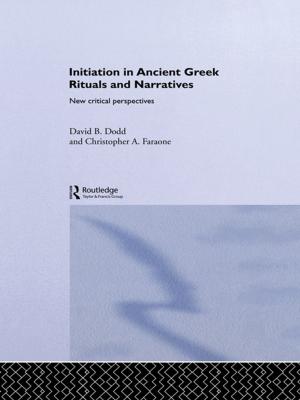Perspectives of National Elites on European Citizenship
A South European View
Nonfiction, Social & Cultural Studies, Political Science, Government, Civics, Politics, Civil Rights| Author: | ISBN: | 9781317995753 | |
| Publisher: | Taylor and Francis | Publication: | April 10, 2014 |
| Imprint: | Routledge | Language: | English |
| Author: | |
| ISBN: | 9781317995753 |
| Publisher: | Taylor and Francis |
| Publication: | April 10, 2014 |
| Imprint: | Routledge |
| Language: | English |
Over the last two decades, the process of European integration has become interwoven with the theme of citizenship and the debate on the democratic quality of the EU and of its institutions has become more salient. What are the views about Europe which emerge when we interrogate the national elites of the four large South European countries, Greece, Italy, Portugal, Spain and what is their vision of a supra-national citizenship in its different facets? Are these views sufficiently homogeneous and do they distinguish themselves from those of the rest of the European Union to the point of enabling us to talk about a "distinctive region of Europe"? Which interpretation(s) of European citizenship emerges from a systematic exploration of these opinions?
Using a set of survey and textual data collected in the framework of the IntUne project, the authors attempt to provide some original answers to these questions.
This book was published as a special issue of South European Society and Politics.
Over the last two decades, the process of European integration has become interwoven with the theme of citizenship and the debate on the democratic quality of the EU and of its institutions has become more salient. What are the views about Europe which emerge when we interrogate the national elites of the four large South European countries, Greece, Italy, Portugal, Spain and what is their vision of a supra-national citizenship in its different facets? Are these views sufficiently homogeneous and do they distinguish themselves from those of the rest of the European Union to the point of enabling us to talk about a "distinctive region of Europe"? Which interpretation(s) of European citizenship emerges from a systematic exploration of these opinions?
Using a set of survey and textual data collected in the framework of the IntUne project, the authors attempt to provide some original answers to these questions.
This book was published as a special issue of South European Society and Politics.















